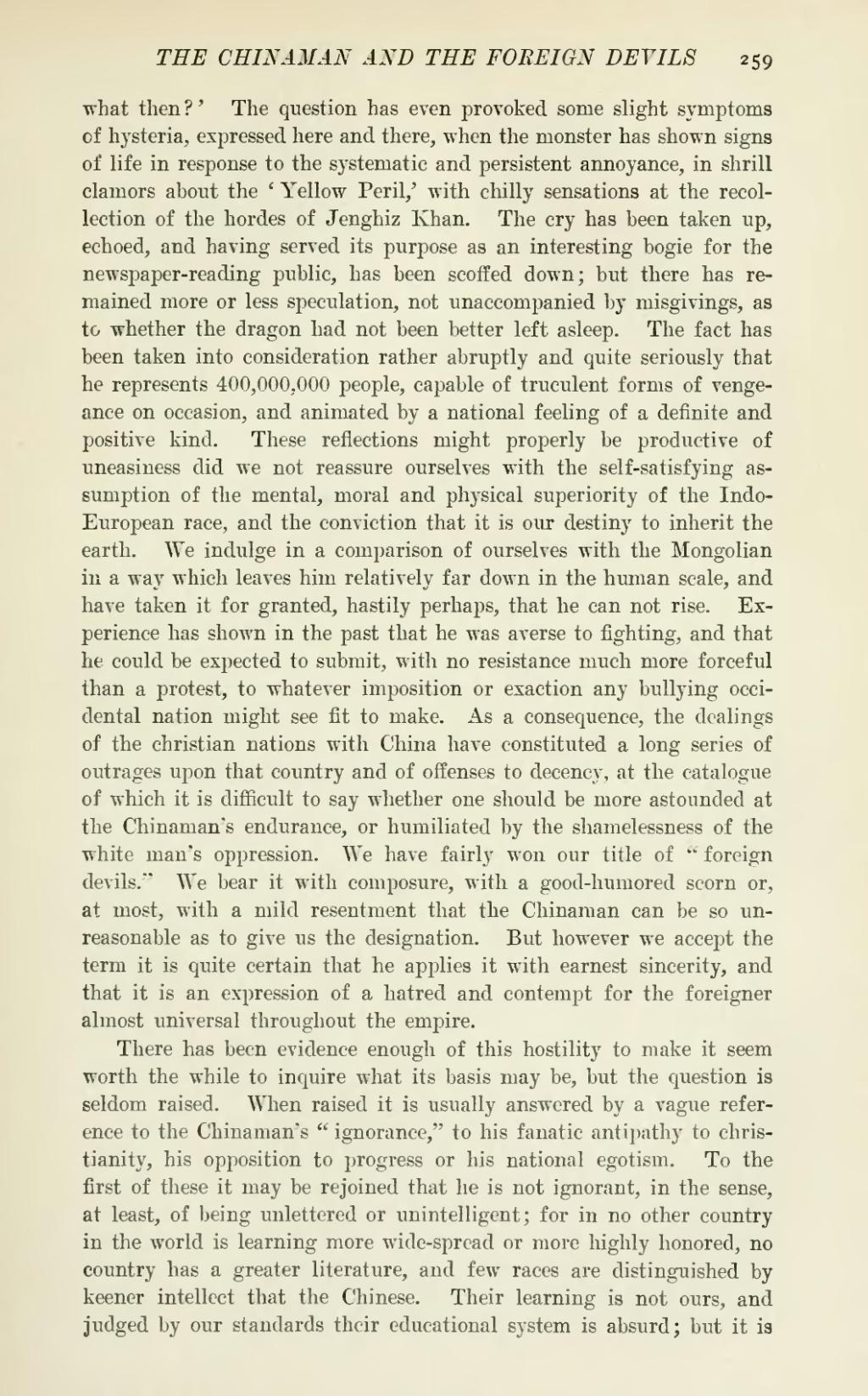what then?' The question has even provoked some slight symptoms of hysteria, expressed here and there, when the monster has shown signs of life in response to the systematic and persistent annoyance, in shrill clamors about the 'Yellow Peril,' with chilly sensations at the recollection of the hordes of Jenghiz Khan. The cry has been taken up, echoed, and having served its purpose as an interesting bogie for the newspaper-reading public, has been scoffed down; but there has remained more or less speculation, not unaccompanied by misgivings, as to whether the dragon had not been better left asleep. The fact has been taken into consideration rather abruptly and quite seriously that he represents 400,000,000 people, capable of truculent forms of vengeance on occasion, and animated by a national feeling of a definite and positive kind. These reflections might properly be productive of uneasiness did we not reassure ourselves with the self-satisfying assumption of the mental, moral and physical superiority of the Indo-European race, and the conviction that it is our destiny to inherit the earth. We indulge in a comparison of ourselves with the Mongolian in a way which leaves him relatively far down in the human scale, and have taken it for granted, hastily perhaps, that he can not rise. Experience has shown in the past that he was averse to fighting, and that he could be expected to submit, with no resistance much more forceful than a protest, to whatever imposition or exaction any bullying occidental nation might see fit to make. As a consequence, the dealings of the christian nations with China have constituted a long series of outrages upon that country and of offenses to decency, at the catalogue of which it is difficult to say whether one should be more astounded at the Chinaman's endurance, or humiliated by the shamelessness of the white man's oppression. We have fairly won our title of "foreign devils." We bear it with composure, with a good-humored scorn or, at most, with a mild resentment that the Chinaman can be so unreasonable as to give us the designation. But however we accept the term it is quite certain that he applies it with earnest sincerity, and that it is an expression of a hatred and contempt for the foreigner almost universal throughout the empire.
There has been evidence enough of this hostility to make it seem worth the while to inquire what its basis may be, but the question is seldom raised. When raised it is usually answered by a vague reference to the Chinaman's "ignorance," to his fanatic antipathy to Christianity, his opposition to progress or his national egotism. To the first of these it may be rejoined that he is not ignorant, in the sense, at least, of being unlettered or unintelligent; for in no other country in the world is learning more wide-spread or more highly honored, no country has a greater literature, and few races are distinguished by keener intellect that the Chinese. Their learning is not ours, and judged by our standards their educational system is absurd; but it is

